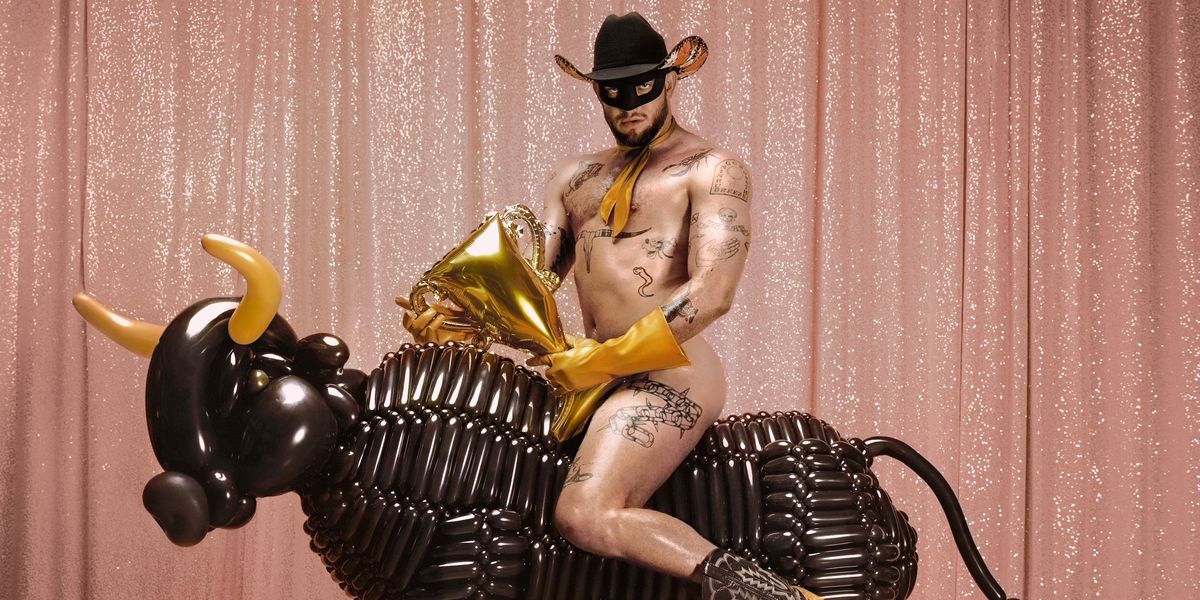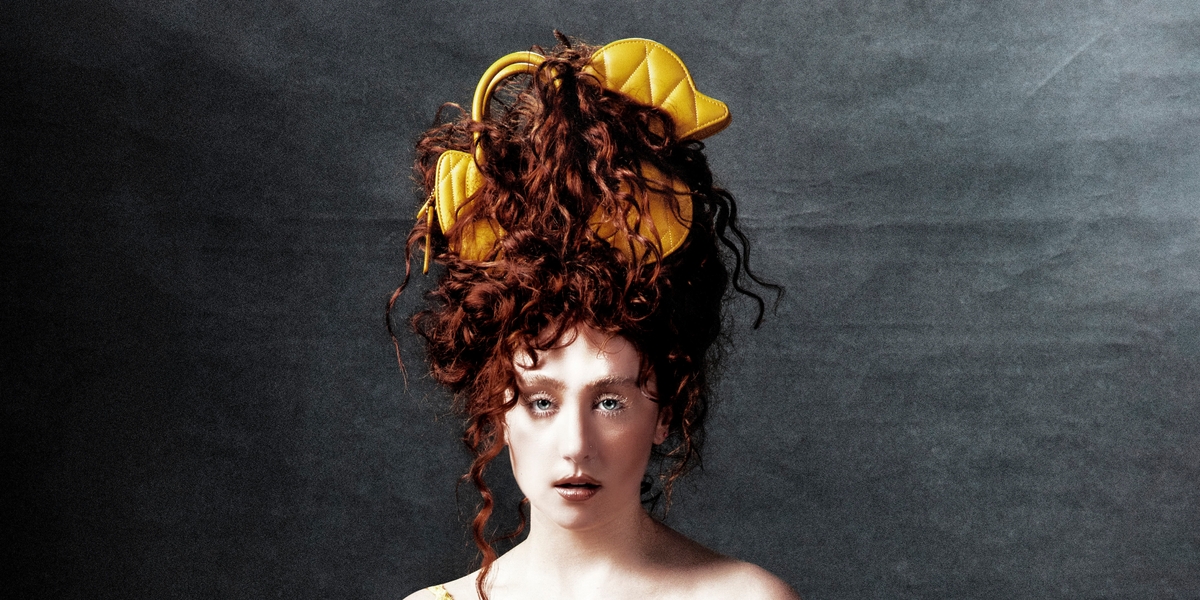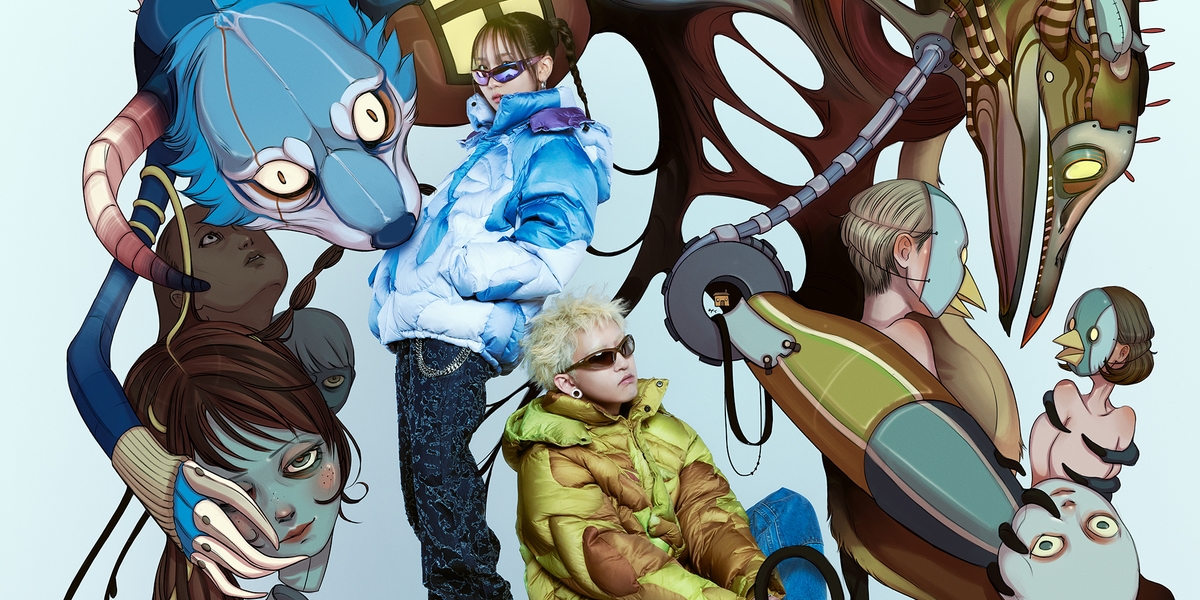
The Summer of Brats
By Joan Summers
Jul 01, 2024It is quite difficult, almost impossible even, to wrap my head around the fact that for the first time in a decade, literally everyone I know is listening to Charli XCX.
In the last few weeks, I have attended multiple Brat-centric club nights, one not even a day after the deluxe edition dropped. No more than 24 hours, and everyone knew “Guess” and “Spring Breakers” as if they were longtime club classics. Whole clubs going up to mixes of “Everything is Romantic” and “365,” heads spinning, bodies merged into the sort of primordial mass that only appears after 2 AM, when the sweat and drugs and clouds of Mugler “Angel” ignite under strobes. My own heart feels close to exploding, and time stretches out into an infinite green horizon.
Chart watchers predict that for the first time since 2014, the hipster darling turned international club diva will have two songs charting on the Hot 100. The album just spent its third week on the Billboard 200’s Top 10. Brat is overwhelmingly her most successful album ever, should we take note of the changing times via streaming and the auditory displacement of digital spaces like TikTok, Instagram, X. Consider the shock then, when Brat dropped from heaven into an almost unrecognizable pop world than the one she broke through with True Romance in 2013.
The early prophecies of this moment are clearer now, in hindsight. Like Brat, 2013’s True Romance was an album born from the underground rave scene of the UK, which Charlotte Aitchinson climbed up from as an aspiring teen pop star. The record was heavy on the synth-pop and dark wave sounds of the scene, intertwined with the internet and the Tumblr blog scroll, itself a successor to Myspace profiles stuffed with demos and mixtapes. Like True Romance, Brat is not an album that exists without the internet, even more than the mixtapes that came between, or Vroom Vroom, or even how i’m feeling now.
Initial receptions to each single were mixed, at times detached from the album’s ethos. The first single, “Von dutch,” leaned heavy on a moment that I felt was thoroughly over, while “B2b” reinvigorated debate and “Club classics” brought SOPHIE — and the fuller shape of the album to come — into conversation. The music video for “360” was stuffed with the sort of “internet famous” dilettantes that elicit reactions like: “Only people with brain worms will recognize everyone.” An interesting week of discourse, in hindsight, considering how drastically the mega-club around the album has expanded since it dropped in June.
Unlike peers who so often fail to cohesively merge their lives online and their art in the real world — Taylor Swift’s angsty musings on The Tortured Poets Department, most recently — Charli manifests the impossible. It’s been a vast bridge to build, between the Brat wall and Icona Pop’s “I Love It,” battered by label contracts and the sea changes of an increasingly sexless, uncool pop landscape.
That ephemeral concepts like “cool” are in the mix at all feels as if a great boil has erupted, slowly building pressure until the myriad complex emotions she and fans alike wrestle with on the album have nowhere else to go but out, and everywhere. I feel the other forces at work too. Brewing conversations about the disconnectedness of queer nightlife, the apathy of the everyday, the reality that four years have gone by, beset by more death than most have seen in their lives, bodies and communities and dreams irreparably damaged, or at least fundamentally changed.
Nine months of protest and the specter of that virus crash into a wall as their kinetic force floods into any and all outlet, the club the most obvious among them
I’m back at Brat night at The Dolphin, in Philly, where I party to party for party’s sake, unlike what New York City often does to the cultural observer. I’m up against the light wall while “Guess” drills another hole into my skull, showing off the color of my little lacy underwear. The beat blends into SOPHIE’s posthumous single “Reason Why” and the mood becomes pensive. Her spirit fills the room, as does the pain. The momentum transfers into “Sympathy is a knife”; the tension breaks.
“Guess” and “Sympathy is a knife,” about as far away from each other on the album as two songs could be, are perhaps the most emblematic of the turmoil central to Brat, a clash of feelings and ideas that build out Charli’s definition of what a “Brat” is, exactly. One is a boisterous and trashy anthem for the iconoclastic slut, confident in their belief that everyone wants a peak up the skirt. “Sympathy is a knife” inverts that overwhelming confidence. Beneath the brat is a hopelessly insecure pop star, lashing out at herself and others when confronted with feelings of jealousy and loathing. Or, more specifically, a threat. A threat to her immediate social scene, a threat to her career, a threat to the formerly confident belief that she is the center of her own universe.
Like many of her fans, Charli comes into her thirties at a moment when pop music’s scope has been drastically widened. Peers in the same Spotify Pride roundups, like Carly Rae Jepsen, have proven over the last decade that the sex doesn’t stop when the clock strikes 30 — nor does the party. The petty trivialities of your twenties don’t quite disappear either, they just grow along with you, gaining complexity that often comes with dire stakes. The drugs and the alcohol and the parties and the sex and the friendships have weight to them now, tugging at the fabric of our lives with enough pressure to rip and tear in ways that can’t be so easily mended.

The feelings shouldered by “Sympathy is a knife” are reflected later in “Girl, so confusing,” a song that predictably spawned numerous conspiracy theories about the woman on the receiving end of her lyrical dressing down. “You’re all about writing poems/ but I’m about throwing parties/ Think you should come to my party/ and put your hands up”: The unresolved insecurity lashes out again, and is then responded to in kind, when Lorde emerges on the remix. “I was trapped in a hatred/ and your life seemed so awesome/ I never thought for a second/ my voice was in your head.” This remix is, indisputably, the most sensational moment of Charli’s pop career so far, and the breakout highlight of an album already so viral nobody can seem to escape it online.
More specifically, that sensational moment was made possible by the collective ruminations of Brat’s listeners on the song’s intended target. That, and their own confusings girls in their own confusing worlds. To then unmask her, weeks later, is the sort of savviness it takes to pull together an album like Brat at all, least of all as someone’s sixth studio album. The remix’s predicted entrance into the Top 200 is evidence of the new version’s intense emotional payoff, for Lorde and Charli both, and the album’s many dance floor attendants. All around me, bodies lift into the air, and an absolutely massive cry of “Girl, you walk like a bitch!” hits me with the concussive force of a bomb.
This maelstrom of polarizing emotions bottled into Brat give it a heft the singles were unburdened by, removed from these minute-to-minute anxieties Charli struggles through on the album’s 18 tracks. The Brats are outside and asking questions simmering for over a decade, Charli chief among them. Will she ever have children, and will her boyfriend put her panties in his mouth, and can the apple really ever fall far from the tree, and will she ever buy that gun to shoot herself with backstage at her boyfriend's show, confronted by the tall blonde with enough accolades to make her call in a bomb threat to the Grammys?
Brat offers no answers, and neither does the dance floor. The beat pulses. My dress clings to my skin, hair sweat out, friends a million miles away. I can’t remember if it's our second or third time out past 2 AM this week — I don’t really care. Time unspools around me. The beat pulses again. My friends crowd in close and I push my hair back, laughing, looking hot while we’re all bumpin’ that.
Photo via Getty
From Your Site Articles
Related Articles Around the Web
MORE ON PAPER
Fashion
Law Roach Has No Fear
Story by Andrew Nguyen / Interview by Mickalene Thomas / Photography by Micaiah Carter / Creative and styling by Law Roach / Hair by Kim Kimble / Makeup by Centerria Nicole
Story by Andrew Nguyen / Interview by Mickalene Thomas / Photography by Micaiah Carter / Creative and styling by Law Roach / Hair by Kim Kimble / Makeup by Centerria Nicole
27 June
Music
We're in the Mahmood
Story by Kyle Rice / Interview by Willy Chavarria / Photography by Hannah Khymych / Styling by Marissa Pelly / Grooming by Francis Rodriguez / Makeup by Kauv Onazh
Story by Kyle Rice / Interview by Willy Chavarria / Photography by Hannah Khymych / Styling by Marissa Pelly / Grooming by Francis Rodriguez / Makeup by Kauv Onazh
18 June
Music
Orville Peck Is Ready to Take It All Off (Almost)
Story by Michael Cuby / Interview by Gottmik / Photography & direction by Brett Loudermilk / Creative & art direction by Zain Curtis / Styling by Catherine Hahn / Hair and makeup by Hatti Rees
Story by Michael Cuby / Interview by Gottmik / Photography & direction by Brett Loudermilk / Creative & art direction by Zain Curtis / Styling by Catherine Hahn / Hair and makeup by Hatti Rees
11 June
Music
Chappell Roan Is Taking It
Story by Joan Summers / Interview by Trixie Mattel / Photography by Hector Clark / Styling by Genesis Webb / Makeup by Doniella Davy / Hair by Faye Celeste
Story by Joan Summers / Interview by Trixie Mattel / Photography by Hector Clark / Styling by Genesis Webb / Makeup by Doniella Davy / Hair by Faye Celeste
04 June
Music
YOASOBI's Global J-Pop Overthrow
Story by Travis Shosa / Photography by Brian Ziff / Illustration by Lauren Tsai / Styling by Nico Amarca / Hair and makeup by Youca
Story by Travis Shosa / Photography by Brian Ziff / Illustration by Lauren Tsai / Styling by Nico Amarca / Hair and makeup by Youca
21 May




